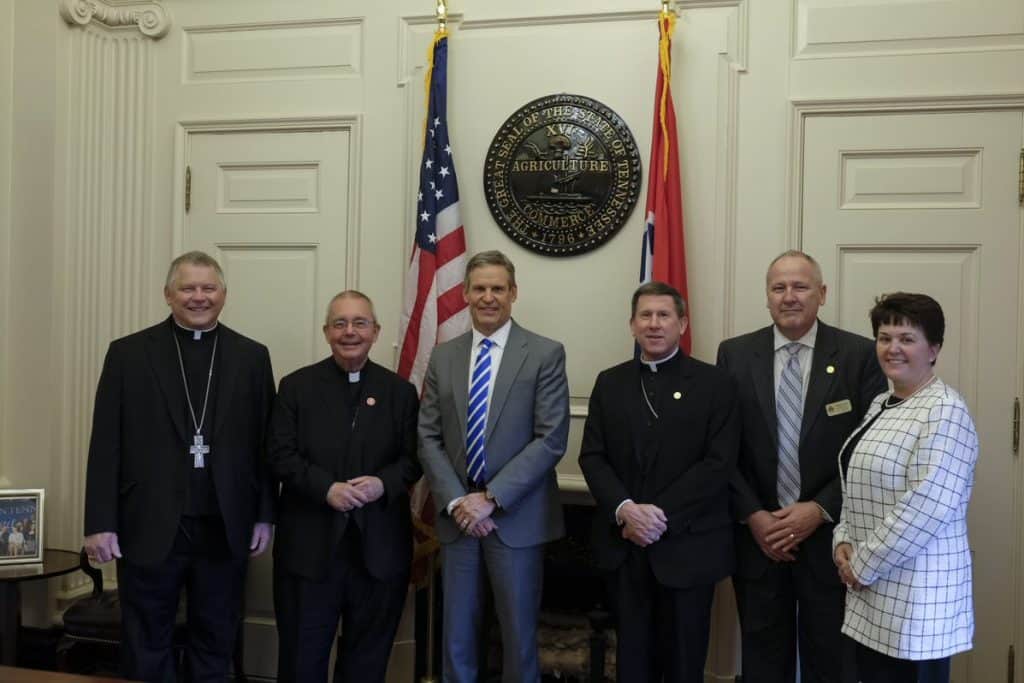
Nashville on Tuesday, March 23. The bishops and all Catholics are called to bring their faith
to the public square. Photo by Rick Musacchio
The Catholic Church’s liturgical year reaches its high point during Holy Week and Easter with our celebration of Christ’s passion and resurrection, his sacrifice and victory over death that opened the path to eternal salvation for all.
It is the glory of Easter and Christ’s redemptive love that the Church and individual Catholics are called to proclaim in word and deed as we invite others to share in God’s never-ending mercy.
In the Gospel of Matthew, after Jesus shares the Beatitudes with his disciples, he tells them “You are the light of the world. A city set on a mountain cannot be hidden. Nor do they light a lamp and then put it under a bushel basket; it is set on a lampstand where it gives light to all in the house. Just so, your light must shine before others, that they may see your good deeds and glorify your heavenly Father.”
Our light is the light of Christ, from which Church teaching flows. Those teachings are not to be confined to our churches, but to be shared with the world. In some instances, that requires Catholics to bring their voice to the public square to join the conversation about policies and laws that can strengthen the common good.
The three bishops of Tennessee, Bishop J. Mark Spalding of Nashville, Bishop Richard Stika of Knoxville, and Bishop David Talley of Memphis, were doing just that when they recently met with Gov. Bill Lee and Lt. Gov. Randy McNally.
In their meeting with the governor, the bishops thanked him for his leadership responding to the COVID-19 pandemic, particularly his executive orders that allowed churches and schools to respond to the pandemic based on local conditions and protocols. At the time, some wanted to limit attendance at church services, such as Masses, to such a small number that they essentially would have been limited to the celebrant and a handful of others.
When the bishops joined other religious leaders in asking that they receive the same consideration as businesses such as restaurants, that they be allowed to let their light shine, the governor agreed.
They also discussed other issues of interest to the Church, and throughout the discussions it was apparent that the governor drew on his own faith and his respect for the bishops, just as they drew on the Catholic faith and their respect for the governor.
The bishops do not enter discussions like these with political leaders seeking to create a theocracy. Instead, they seek to create a dialogue, bringing the reason and faith of Church teaching to the debates about public policy in service of the common good. They bring the same teachings to public servants of all partisan persuasions. It’s about policies and Church teaching, not parties.
It is an important part of the bishops’ responsibility to proclaim the good news of Jesus Christ to the world. But it is a responsibility that every Catholic shares. We must do it in our relationships with our families, with our neighbors, with our co-workers. We must do it as we reach out to those on the margins of society, sharing Christ’s love. And must we do it when we talk with those who do not share our faith or our perspectives on matters of public policy.
In every situation, we must do it with love and compassion and civility.
We must not hide our light under a bushel, because that is the light that can shine bright in every heart.









